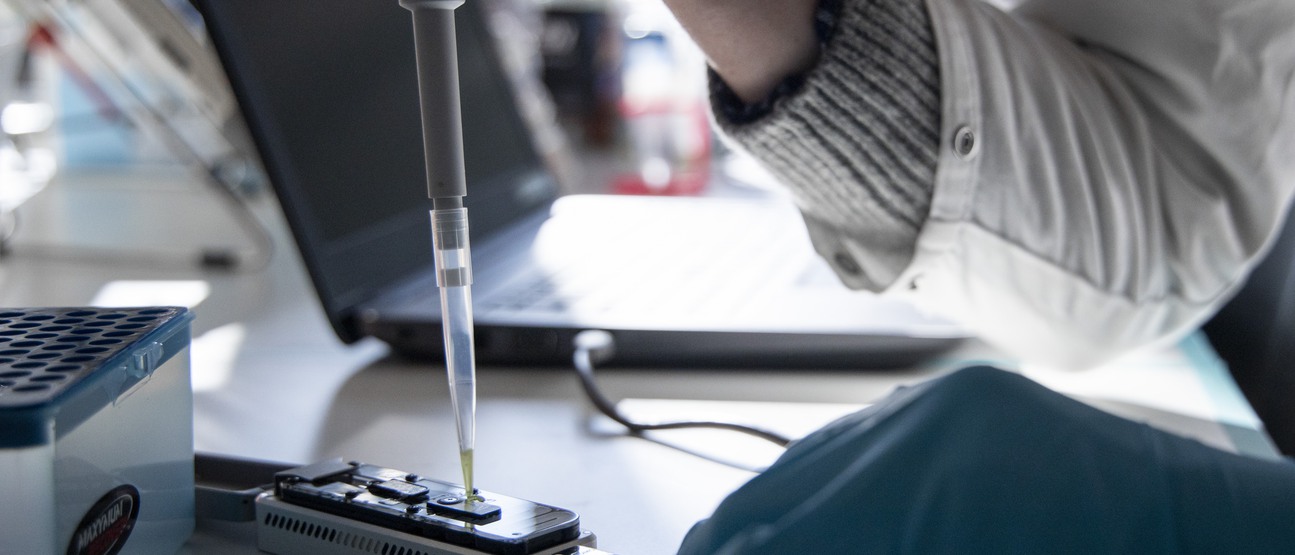Anna-Karin Pernestig
School of Bioscience


This project is one of several ongoing projects in the research "Future diagnostics of sepsis". The goal is to develop earlier and more accurate diagnostics for sepsis in order to increase the chance of patients suffering from survival and with less disease complications.
All over the world, sepsis is associated with high mortality and morbidity. Furthermore, the problems associated with sepsis are expected to increase; the elderly is a major risk group for acquiring sepsis and the proportion of elderly people in the population is expected to increase in the future. There is also an increasing amount of humans living with weakened immune systems, caused by HIV, cancer treatments or transplant drugs. An early and accurate detection of sepsis is important, since every hour of delay of appropriate antibiotic therapy increases mortality by 5-10 percent.
Often the patients do not show classical signs of infections as high fever. Instead, symptoms like vomiting, dyspnea, and abdominal pain, can be present which complicates the diagnosis of these patients. This result in a delay until the patient receives adequate treatment, which in turn can lead to a worsen condition for the patient with more severe complications and longer hospitalization. An early and correct diagnosis of sepsis patients may also lead to a reduction of unnecessary antibiotic use.
Since the rate of resistant bacteria have been associated with the frequency of antibiotic consumption, it is extremely important that antibiotics only are used for treating bacterial infections. Blood culture is the current gold standard for diagnosing sepsis, since viable microorganisms isolated from blood cultures can be analyzed to identify species and susceptibility to antimicrobials.
However, the practical value of blood culture in the diagnostics of sepsis is hampered by the time-delay of 2-3 days to results and that only 30 to 50 percent of the sepsis patients have positive blood cultures. The usage of biomarkers may aid early diagnosis, and thus, early initiation of appropriate therapy in patients with sepsis. Biomarkers have also been suggested useful for antibiotic stewardship and for personalized therapy. Since sepsis gives rise to a complex host immune response, it is unlikely that any single biomarker will be sufficient for reliable diagnostics of sepsis and adequate stratification of patients. A reliable, clinically useful test is expected to be based on multiple markers.
The primary aim of this project is to develop multimarker panels to enable earlier recognition of sepsis. A prospective, consecutive study of community-acquired sepsis in the western region of Sweden has been conducted at Skaraborg hospital in collaboration with the University of Skövde and Unilabs AB. Adult patients admitted to the emergency department receiving intravenous antibiotics within the first 48 hours were evaluated for sepsis. Plasma and whole blood samples from the patients were collected for storage in a biobank, enabling high-throughput screening for identification of potential sepsis biomarkers. Data mining techniques are being utilized to select optimal combinations of biomarkers and clinical data, as well as for the model development process. The developed model will interpret the input data, i.e., biomarkers and clinical data, and provide a classification score for the probability of sepsis for the patient as an outcome.
This project is performed in close co-production with our partners, TATAA Biocenter AB, MultiD Analyses AB, Unilabs AB, bioMérieux Sweden AB, and Skaraborg Hospital. TATAA is Europe´s leading provider of services within the entire field of real-time quantitative PCR (qPCR). They are active in research and development in qPCR and related areas through in-house research as well as collaborations with external partners. MultiD are experts in multivariate expression profiling analysis and are market leaders in the qPCR field with their software GenEx®. They continuously develop and improve user-friendly methods for multimarker analysis. Unilabs is a leading European diagnostic company offering laboratory medicine and radiology services to public and private health care units. One of the company´s commitments is to promote research and development within diagnostic in order to support the development of Unilabs as well as fulfill their customers' demands. The global company bioMérieux develops diagnostics tests bringing high medical value for clinical decision makings in various areas, and has a longstanding commitment to fight sepsis.






